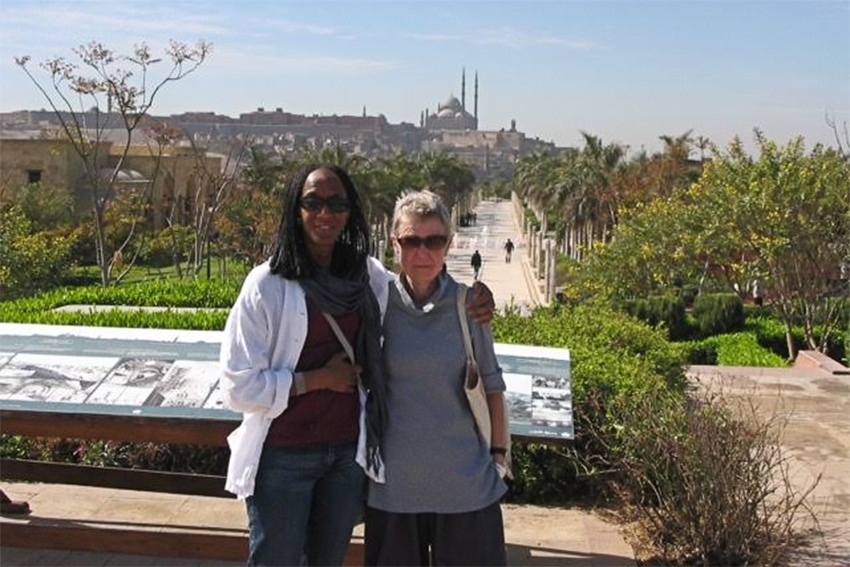On her last day on earth, Barbara Harlow removed her ventilation mask and held up a vodka tonic to a room of loved ones in the intensive care unit, celebrating a life well-lived.
“She knew she was going to die once they had taken off the breathing tube,” said Neville Hoad, English associate professor and one of Harlow’s closest friends. “She wanted the last taste with her friends, and so we did. She lived on her own terms and wanted to die on her own terms.”
Harlow, a UT English professor, scholar and human rights activist, died Jan. 28 after a short battle with terminal cancer.
Harlow led campus protests in support of Palestine at UT, and she spoke vehemently against apartheid South Africa, wars in the Middle East, American torture tactics and Palestinian mistreatment, according to an obituary by UT history professor Toyin Falola.
Harlow received a bachelor's degree in French and philosophy from Simmons College in Boston in 1970. Harlow also pursued a master's degree at the University of Chicago and received her Ph.D. on the writings of Marcel Proust at SUNY Buffalo in 1977. She has taught at the American University in Cairo, Hobart and William Smith Colleges, and UT.
Falola said Harlow was the founder of both the Ethnic and Third World Literatures concentration and the Bridging Disciplines Program in Human Rights and Social Justice.
Falola said he met Harlow when he was a graduate student doing his Ph.D. research in Egypt in 1992.
“She was someone who interacted with everybody, respectful of their agenda, their race, their class, their ethnicity,” Falola said. “[She encouraged] a new generation of doctorate students to think in terms of human rights, activism and eco-literature, the blending of the environment and literature.”
Harlow helped Falola establish a high school in his home country of Nigeria.
Professor Hoad described Harlow as a deeply loyal friend, a pioneer in postcolonial studies and quite the cat lady. Harlow made all own pants and that’s all she would wear, Hoad said.
“[Harlow] combined activism and scholarship in interesting and new ways,” Hoad said. “She didn’t suffer fools gladly.”
Kamran Ali, associate professor of anthropology, Middle Eastern studies and Asian studies, said Harlow was a scholar who taught on global terms and a pioneer in teaching literature and human rights courses.
“She was a person who inspired a lot of us and guided us,” Ali said. “Especially in this day and age when things are changing so fast, we needed her and her insights and her mentoring, so she will be sorely, sorely missed.”
Elizabeth Cullingford, English professor and department chair, said Harlow is important now because she’s a figure for resistance.
“Eccentric is the wrong word,” Cullingford said. “She was incredibly original. In a time of Trump, she would’ve been a real voice for resisting, because she was absolutely concerned about people of color, people who are poor, people who are targeted by the government and people in the Middle East.”
Cullingford said the Palestinian cause was extremely important to Harlow because she had her first job at the University of Cairo in 1977.
Harlow taught at UT for over 30 years and wrote three books. She died at 68 and was in the process of writing a book on the culture of drones.















